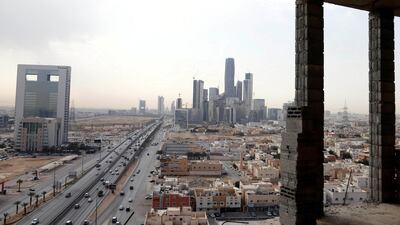Saudi Arabia is making it easier for businesses to set up shop in the Arab world’s largest economy with 12 regulatory reforms that will allow an enterprise to be set up in just one day.
The changes come amid a massive economic reform programme dubbed Vision 2030 that is seeking to make the kingdom, the world’s largest crude exporter, less reliant on revenues from hydrocarbon sales.
“As a result, the government’s streamlining of transmission of applications tackle various circumscriptions to doing business inside the kingdom and the process will become a model in enhancing business activity by virtue of simplification,” the ministry of culture and information said in a statement.
The new online service for business people will let entrepreneurs to search and book his or her trade name, fill in company articles of association details, add partners and shares, without the need for attestation by a public notary, using electronic authentication. The service also allows business owners to pay government fees online as well as to obtain commercial registration along with the company’s article of association.
_________________
Read More:
Saudi Arabia’s PIF and Six Flags to build theme park in the kingdom
Foreign investors pile into Saudi Arabia in March amid kingdom's FTSE upgrade
_________________
Existing red tape, such as the requirement of a company seal, has been done away with in a bid to make starting a business easier. As soon as a company registration is issued, entrepreneurs will be given a temporary company licensing code that will allow immediate registration with the ministry of labour, social insurance and income tax authorities among others. Women are also now able to start a business without the consent of their family. At the same time the government is supporting businesses by subsidising the costs of setting them up, the ministry of culture said.
"The government of Saudi Arabia has supported new businesses financially by subsidising government costs, where it had allocated 7 billion riyals in recovering government fees during their first three years of the company’s continuance, and made the registration for this subsidy online," the statement added.
Saudi Arabia is stepping up efforts to diversify its economy in the wake of the three-year slump in oil prices that began in 2014. The country is seeking to revive its economy after low oil prices curtailed job creation and growth.
The measures include a reduction of energy subsidies, plans to raise taxes such as this year's introduction of 5 per cent VAT and selling off state assets including a 5 per cent stake in Saudi Aramco, the world's biggest oil producer whose sale may fetch as much as $100bn. At the same time, it is making it easier for international investors to tap its stock market and the market regulator has brought rules and regulations, such as settlement of equities, in line with international norms.
The changes, spearheaded by Crown Prince Mohammed Bin Salman, also include a host of social reforms that are relaxing restrictions on what women can do. As well as starting a business without the consent of family, women can now drive.
The government is also boosting spending in order to propel growth that was curtailed by fiscal consolidation and low oil prices. It unveiled last year its biggest ever bugdet for 2018 that includes spending on vital sectors. It also plans to initiate a stimulus programme aimed at boosting private sector growth.

